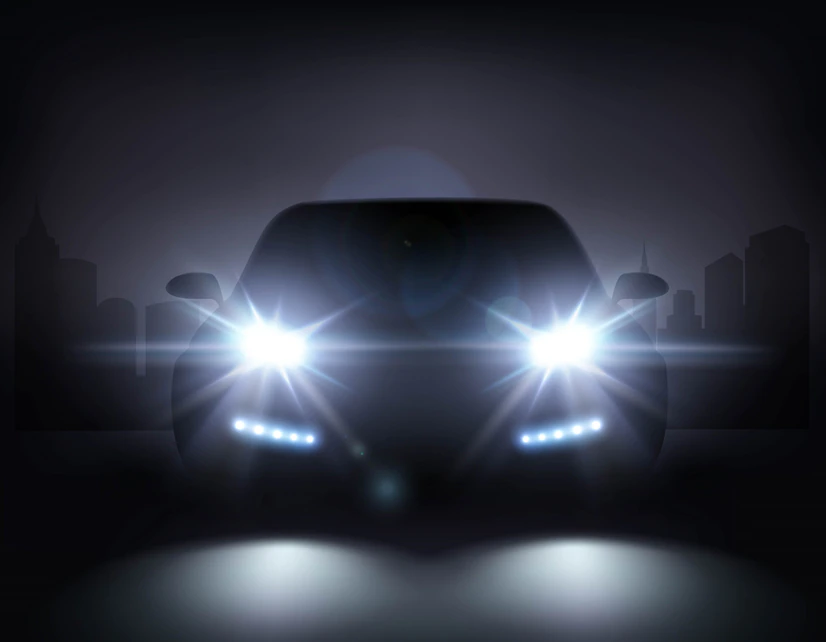
Driving at night is unquestionably more difficult than driving during the day. This is primarily due to the lower visibility than during the day. As a result, spotting obstacles or changes in road conditions becomes more difficult. Indeed, many road accident statistics from around the world show that the majority of mistakes happen at night. No, avoiding night driving totally is not the solution. In fact, according to statistical information, new drivers that have no experience driving at night are more likely to crash when they finally need to drive at night. So the best thing to do is gain some night-time driving experience.
Check the headlights:

Check that your vehicle has a good pair of working headlights. An excellent set of headlights can assist you in noticing even the smallest things on the road ahead of you even if there are no Street lighting. Driving with a dull pair of headlights can be risky, as inadequate visibility is another major cause of nighttime accidents. Bright headlamps not only provide a better view of the road ahead, but they also assist in moving traffic and notify you well in advance.
Avoid High beam:
Avoid blinding other drivers by driving with your high beam on in congested locations. However, on a clear road, especially if the road lights are weak, it is best to utilize a high beam. However, it is suggested that you turn to a low beam as soon as you detect a vehicle approaching, even if the incoming motorist does not. Even if others aren’t, it’s not a bad idea to be nice. If approaching cars do not drop their beams, do not gaze into them since this may cause visual blurring or partial blindness long after the vehicle has passed. Instead, concentrate on the white line on the road to keep yourself on the right side of the road.

Windscreens and windows should be clean:
It is critical to keep them clean so that the driver can see the road properly. To keep the windscreen clean, ensure sure the windscreen washer is constantly full and the wipers are in good operating order.
Checking Your Car on a Regular Basis:
Make sure you have a routine auto maintenance checkup. It might assist you in preventing automobile problems. The battery must be charged, and the oil change must be current, with aligned headlights and working beam settings, among other things.
Beware of Drunk Drivers:
At night, there are more intoxicated drivers on the road who endanger themselves and others. Always be on the lookout for them by keeping an eye on their car’s speed, response time, lane location, and other factors. If you happen to come upon one, keep your distance.
Drive Defensively:
It’s always better to be cautious than sorry. To avoid an accident, always check your blind area before changing lanes and keep an eye out for traffic signs, animals, bikers, and pedestrians.
Don’t Overspeed:
While we cannot emphasize enough the significance of driving slowly at night, it is especially important on Indian streets due to the presence of bikes and pedestrians, both of which are difficult to see at night. It’s also a good idea to keep a safe gap between your car and the one ahead of you to avoid any mishaps during panic stops.
If you are weary, never drive at night:
When sleepy, one should not drive at all, but this rule should be strictly observed, especially at night, because night driving demands a lot of focus and devotion. If you become fatigued, exit the main route, make a small stop, most likely at a gas station, stretch your legs and go for a stroll, drink some water, and wash your face. Don’t risk a night drive in this circumstance since losing this bet might cost you your life. Drive carefully, diligently, and safely.
Also Read:
* Why Cars Make So Much Noise When Shifting Gears?
* How To Plan The Perfect Road Trip: A Comprehensive Guide
* How To Change A Headlight Bulb | Step-by-Step instruction




